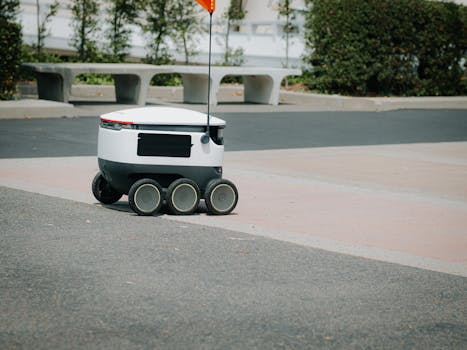Quantum Computing in Appliances: The Future of Smart Home Efficiency
Technology has revolutionized the way we live, and the concept of a “smart home” has become increasingly popular among homeowners. From voice-controlled virtual assistants like Amazon’s Alexa to security systems that can be controlled remotely, technology has made our lives more convenient and efficient. But what if we told you that there’s a new technology emerging that could take smart homes to the next level? Enter quantum computing – the future of smart home efficiency.
The Basics of Quantum Computing
Quantum computing is not a new concept, but it has gained significant attention in recent years due to advancements in technology. Traditional computers, known as classical computers, use bits to store and process information. These bits can represent either a 0 or a 1, which limits the complexity of calculations that can be performed. In contrast, quantum computers use quantum bits, or qubits, which can represent both 0 and 1 simultaneously. This allows quantum computers to process and analyze vast amounts of information at a much faster rate than classical computers.
The Role of Quantum Computing in Appliances
The use of quantum computing in appliances is still in its early stages, but it has the potential to significantly impact the way we interact with our home appliances. One of the most notable advantages of quantum computing is its ability to handle complex calculations in real-time. This means that appliances equipped with quantum processors can make decisions and adjustments instantly, making them more efficient and responsive.
Saving Energy and Reducing Waste
One of the major issues with traditional appliances is their energy consumption. With quantum computing, appliances can analyze energy usage patterns and adjust their settings to optimize energy efficiency. For example, a refrigerator equipped with quantum processors can detect when it’s being opened and closed frequently, and intelligently adjust its temperature to conserve energy. This not only reduces energy waste but also cuts down on utility costs for homeowners.
Improved Performance and Functionality
Quantum computing has the potential to greatly enhance the performance and functionality of home appliances. For instance, quantum processors can handle complex algorithms, making it easier for appliances to interpret and respond to voice commands. This means that appliances like coffee machines or vacuum cleaners can better cater to individual preferences and adjust their settings accordingly.
Increased Security
With the growing number of smart appliances in homes, security concerns have also risen. Quantum computing has the potential to improve the security of smart appliances by providing enhanced encryption capabilities. This would make it more challenging for hackers to access sensitive information, ensuring the safety and privacy of homeowners.
The Future of Smart Homes
The use of quantum computing in appliances is still in its infancy, and it will take some time before we see it integrated into our daily lives. However, the potential impact of this technology on smart home efficiency is undeniable. As quantum computing continues to evolve and be implemented, we can expect to see more energy-efficient and high-performing appliances that cater to our personalized needs. Smart homes will become even smarter with the integration of quantum computing, bringing convenience, efficiency, and security to a whole new level.
In Conclusion
Quantum computing is not a far-off concept; it is quickly becoming a reality, and its potential impact on smart home efficiency is promising. As more research and development is invested in this technology, we can expect to see its integration into our daily lives, making our homes more energy-efficient, secure, and functional. So get ready to embrace the future of smart homes – powered by quantum computing.









